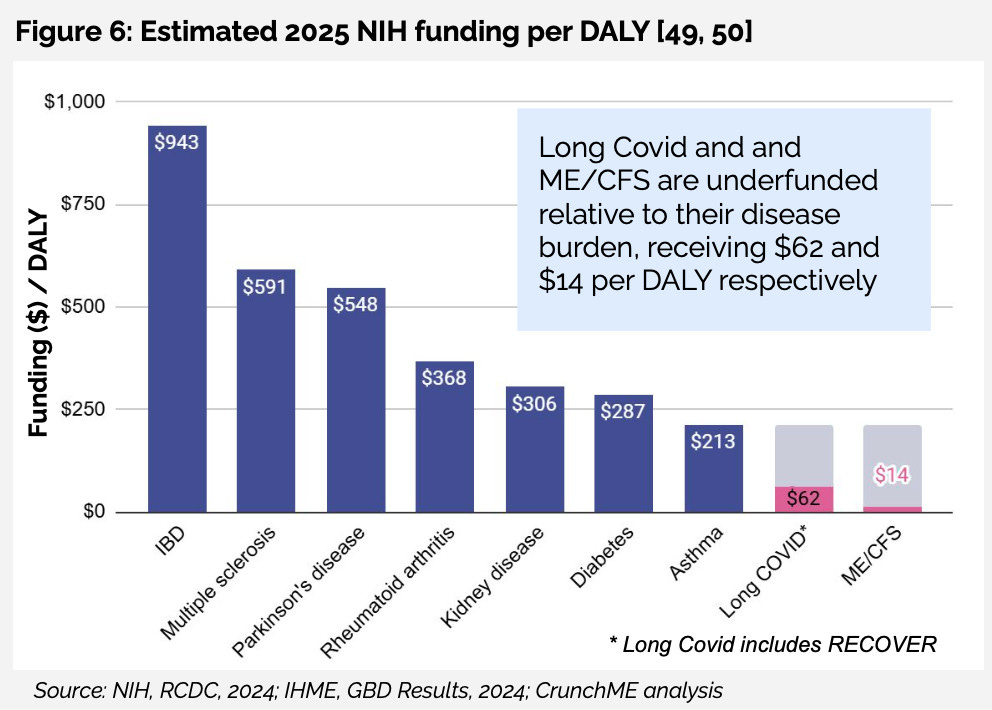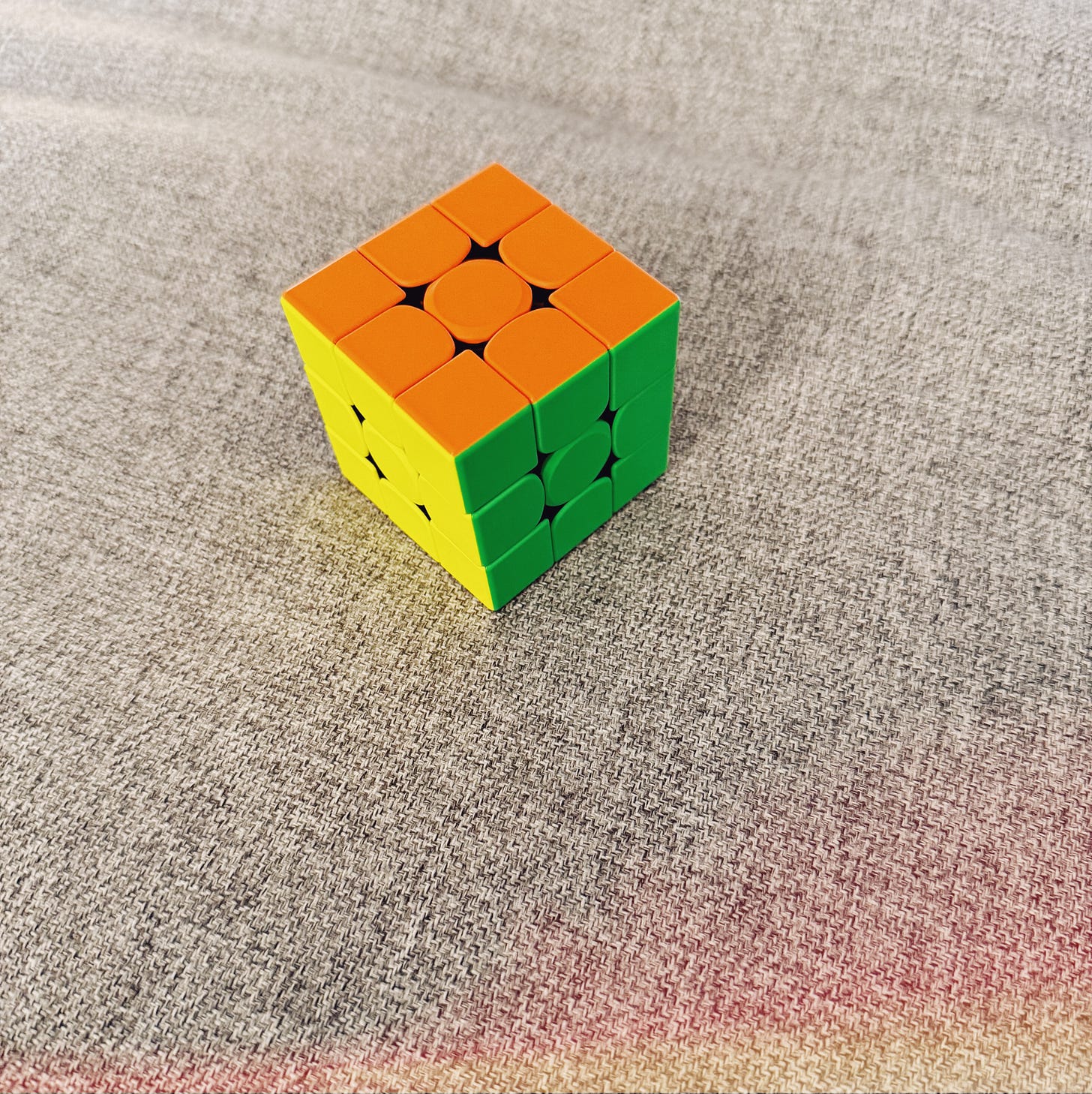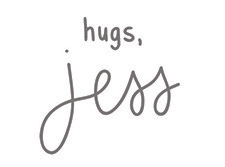Three months ago, I had my “Oh shit, bedrest immediately” moment. All things considered, three months is a ridiculously short amount of time to wrangle that impossible mission into something that resembles a sustainable routine. It’s been a whirlwind of creativity, trial and error, and straight-up stubbornness, but drumroll please….
The children have informed me that we have found our rhythm.
But let’s back up a minute.
What "Bedrest" Really Means
I’ve been calling this "bedrest," but let’s be clear: it’s not the kind of bedrest where a doctor says, "Stay in bed for your health," and you lounge around watching Harlan Coben thrillers on Netflix like you’re having a staycation. I don’t have to stay in bed. I could get up and do whatever I wanted.
The problem is my body responds to just about any form of activity with a heart rate in my personal danger zone, a comorbidity called dysautonomia. Even loading the dishwasher can trigger post-exertional malaise (PEM), a symptom unique to MECFS that feels like getting the flu for daring to do something other than….sitting around and watching Harlan Coben thrillers on Netflix.
For example, last week, the cleaners came at an awkward time, so my co-parent graciously let the kids and me hang out at his place while they worked so I could remain horizontal on a soft surface. Instead of spending two hours away from home, we were gone closer to four. My body responded to this simple change in scenery with nausea that evening, extra muscle aches, and a migraine that lingered all week. So, I don’t have to stay in bed, but if I don’t, my body punishes me.
Bedrest isn’t a choice; it’s an ultimatum.
The Daily Grind, Reimagined
In October, I promised my kids that the workarounds we were using would be temporary—that it would take time, but I’d figure out how to make life feel normal again. They stepped up in incredible ways, taking on more responsibility than any of us imagined they could handle. About halfway through, I gave them additional privileges, which felt more than fair. (For the record, the one privilege was Fortnite. They’re obsessed, and I’ve made my peace with it.)
Still, about eight weeks in, I started panicking: I had no regular help and the house was slowly falling apart. How does someone stop driving, cooking, cleaning, shopping, and working outside the home without their entire life exploding?
The answer: you get creative as hell.
I now have about 10 hours a week of help around the house from folks who I jokingly call my “staff” because it’s easier to pretend I have several butlers than to get comfortable having help with daily tasks. Over half of that is someone helping with the kids in the evenings, running them through the dinner-and-shower routine—essentially acting as a second parent. The rest is a friend who handles the physical labor my body can’t manage. Both of these helpers were already in my friend circle, which has made the transition feel less like hiring strangers and more like building a team.
As for the kids, they don’t have chores—they have a set of reasonable expectations to keep the house running. We’ve leaned into everyone’s strengths and preferences including my disability. Don’t want to do laundry? Cool. Would you rather handle the calendar, schedule appointments, send emails, and make phone calls? No? Didn’t think so. Enjoy pairing those socks.
The goal isn’t just dividing labor—it’s making sure everyone understands what it takes to run a house and feels like the work is fair. And thanks to our helpers, it finally does. It’s not perfect, but it’s sustainable. Friends have even stepped in to take the kids out for fun outings, which they’ve missed. And while I miss making fancy Saturday breakfasts, we’ve found a workaround: ordering IHOP once a month. I place the order before I go to bed, and the kids get pancakes delivered right to the door. Magic.
The Medical Shitshow
If the logistics at home are finally settling, the medical side remains a disaster. There are no doctors in my area with experience treating severe MECFS. My primary care physician is trying her best, and we’re getting closer to being on the same page, but it’s a slow process. Every appointment feels like I’m running a meeting with a formal agenda. My therapist, thankfully, gets disability in a way most don’t, and having that kind of support is priceless. Still, the lack of specialty care is crushing. It doesn’t seem unreasonable to want a doctor who has treated someone with my condition before.
Would you want a breast cancer diagnosis and be told, "Well, I’ve never treated breast cancer, but I’ve treated people with other kinds of cancer who also had breasts, so let’s see what happens"? No, you would not.
But that’s truly the *best* case scenario for care with MECFS.
It’s probably related to the lack of research dollars, which is easy to visualize from this graph released this week by CrunchME.
The best I can do is find specialists for adjacent conditions. But that’s the problem with MECFS: we don’t even know what causes it. Is it neurologic? Cardiac? Endocrine? Metabolic? Immunologic? Mitochondrial? Mitochondria (say it with me, folks!) is the powerhouse of the cell. But who is a mitochondria doctor anyway? How do you choose a specialist when no one knows which system is breaking down? I need a unicorn and if one exists, I’m pretty sure my insurance doesn’t cover mythical creatures.
Creative Problem-Solving: The MVP
Living like this is basically a full-time exercise in creative problem-solving. Back in my science days, we talked a lot about "limiting reactants"—the one ingredient in a reaction that determines how much product you can make. In dinner terms, if you’ve got a jar of sauce, a bag of meatballs, a salad, and garlic bread but only 10 sticks of spaghetti, the spaghetti’s your limiting reactant. That’s been my life for three months: identifying limiting reactants and tweaking variables to make things work.
Take hydration. My heart rate demands I stay ridiculously well-hydrated, but I hate drinking room-temperature water, and I don’t want to use a water bottle that isn’t clean. It took me months to realize the limiting step was having ice within reach. So, I bought a mini freezer for my bedroom. Now, I’m well hydrated. (Ok fine, I’m well hydrated 75% of the time which is basically the same thing.)
A friend suggested an ice machine, but that would require cleaning—adding one more step to the process. The freezer, in contrast, asks nothing of me except tolerating a gentle hum of the motor kicking on and off in between increasingly unrealistic scenes of Harlan Coben thrillers on Netflix. That I can do.
This kind of creative thinking is constant. How do I keep high-protein snacks within reach? How do I teach someone to make meals from leftovers when the "recipe" exists only in my head? How do I convey 20 years of medical history to a doctor before running out of time during my appointment? How do I manage laundry, cleaning, appointments, and errands without leaving my bed? It’s like solving a Rubik’s cube that resets itself every day.
Poetically, one of my children is on a Rubik’s cube kick lately. I kid you not: throughout the fall he would leave unsolved cubes around the house. My bedside table, the kitchen island, occasionally I would roll onto one in the middle of the night. Since mid-January, I have found cubes in the same places but they look like this: solved. Someone has figured it out!
So about the January thing.
Don’t get me wrong: while we’ve made impressive progress in three months, I expect that the real emotional challenges will settle as gradually as the days get longer and warmer. It’s very easy to pace myself and stay home when the earth gently pushes all of us to do the same. It’s a lot easier to take care of myself without spring knocking on my door and trying to explain FOMO to me as if it’s a new concept.
I want it to be January forever so I don’t have to figure anything else out for a while.
But the Rubik’s cube will reset, spring will come, and I’ll figure out how to be content at home when all I want to do is go do shit. Right now, it’s healthiest for me to be defined by my disability and that has created an unexpected sense of peace. I’m not interested in being the poster child for some disability redemption narrative where I overcome the odds and achieve what the world views as “health” again. My job is to filter every decision through what I need to ensure that my energy is around for the things that matter most like providing the 1:1 attention the kids need, tucking them in at night, and hiding the six foot cardboard cutout of Jeff Probst around the house to startle them. Our life is simple and it works for us.
Having the right amount of help means I’m actually enjoying my time with them instead of feeling like I’m going to tip over into the ocean when I hear them come up the stairs.
My son came home yesterday and asked me if he could “enter something into the loop of consideration.” I guffawed because he was so right: it’s a great way to describe the sorts of conversations we have each day: there is a loop of consideration and we figure out what parts make the cut each day and which ones don’t.
Personally, it’s frustrating when writing doesn’t make that cut for me but my mentor reminded me that every piece I am completing, I’m doing it sick. I hate it when he’s right.
This is going to be a long, long road, but here’s what I know: I have a freezer three feet away, a staff, and kids who are happy. It’s taken every ounce of creativity to get here, but for now, it’s enough.
If anyone has clout with Puxatawny Phil, let him know that I humbly request a bit more winter. Threaten him with Harlen Coben thriller marathons on Netflix if you have to.
*P.S. I have a medical history template for my fellow people with ME. If you aren’t a subscriber and want that freebie when it’s ready, drop your email below to be notified when it’s ready. I needed my own medical history form to be thorough, take only a few spoons to complete, and be easy to scan visually by a doctor.








Wonderful, and so recognizable!
(And I'm interested in seeing your medical history template. I have a 3-page list... not very scan-friendly.)
the loop of consideration is BRILLIANT, but as an adoring mama you already knew that. I have never considered that being defined by a disability could bring peace, so thanks for that. I love thinking new thoughts. I'm going to ponder that one for awhile. The birds in my backyard having been singing Spring to the woods all day, so I will ask them to pipe it down tomorrow. Just for you. ;)